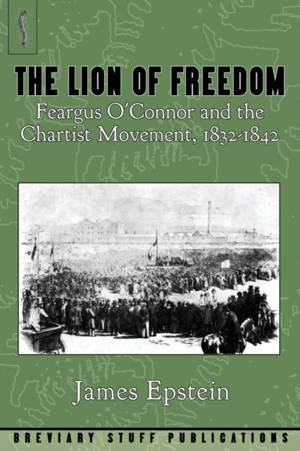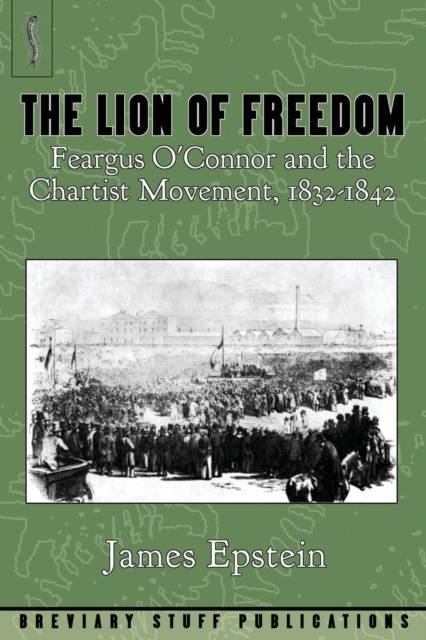
- Afhalen na 1 uur in een winkel met voorraad
- Gratis thuislevering in België vanaf € 30
- Ruim aanbod met 7 miljoen producten
- Afhalen na 1 uur in een winkel met voorraad
- Gratis thuislevering in België vanaf € 30
- Ruim aanbod met 7 miljoen producten
Zoeken
The Lion of Freedom
Feargus O'Connor and the Chartist Movement, 1832-1842
James Epstein
Paperback | Engels
€ 52,45
+ 104 punten
Omschrijving
This book offers an evaluation of the political leadership of Feargus O'Connor, the most prominent leader of the Chartist movement. This study covers the period from 1832-1842 - from O'Connor's election to Parliament through to the establishment of his ascendency over the national leadership of the Chartist movement.Central to this study is a consideration of the principal institutions of national radical leadership, organisation and agitation - the platform and the mass demonstration, the Chartist Press and National Charter Association. While O'Connor came to prominence in the familiar role of the radical gentleman orator at the mass demonstration which heralded the advent of Chartism, he was able to turn his appeal as a charismatic demagogue towards the creation of more permanent and democratic forms of working-class organisation and leadership. Not simply a political biography of O'Connor, this book offers a general history of Chartism and provides an interpretive framework for understanding this complex political movement
Specificaties
Betrokkenen
- Auteur(s):
- Uitgeverij:
Inhoud
- Aantal bladzijden:
- 300
- Taal:
- Engels
Eigenschappen
- Productcode (EAN):
- 9780992946616
- Verschijningsdatum:
- 15/01/2015
- Uitvoering:
- Paperback
- Formaat:
- Trade paperback (VS)
- Afmetingen:
- 156 mm x 234 mm
- Gewicht:
- 462 g

Alleen bij Standaard Boekhandel
+ 104 punten op je klantenkaart van Standaard Boekhandel
Beoordelingen
We publiceren alleen reviews die voldoen aan de voorwaarden voor reviews. Bekijk onze voorwaarden voor reviews.











